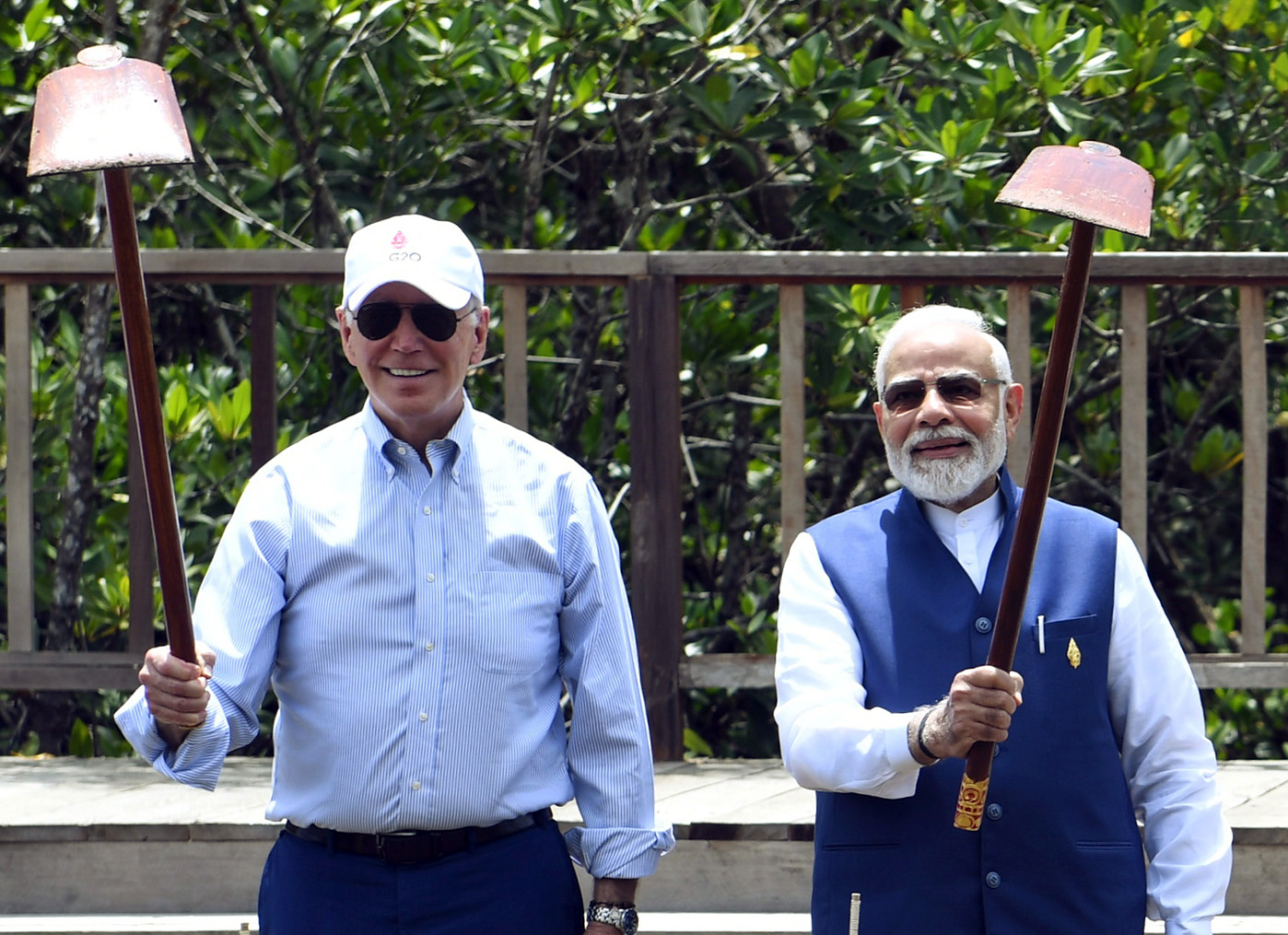PM Modi and US President Joe Biden will explore opportunities to expand and consolidate engagement of the Quadrilateral Security Dialogue as part of a larger strategy to blunt China’s growing assertiveness in the Indo-Pacific.
NEW DELHI: In what will be a significant exercise aimed at preparing an effective strategy to blunt China’s growing assertiveness in the Indo-Pacific, Prime Minister Narendra Modi and US President Joe Biden will reflect on their shared Indo-Pacific vision and explore opportunities to expand and consolidate the Quadrilateral Security Dialogue (Quad) engagement in Washington next month. Prime Minister Narendra Modi will go to the US on a state visit on 22 June following an invitation from President Joe Biden and First Lady Jill Biden. “During PM’s state visit to the US, the Indo-Pacific and maritime security issues amid China’s growing assertive activities in the region will be discussed between the two leaders,” diplomats engaged in finalising the agenda told The Sunday Guardian. “The discussion on expanding Quad engagement and ramping up other activities of the grouping will also be a blunt message to both China and Russia who have been critical of this forum,” they added. China and Russia at the forum of Shanghai Cooperation Organisation recently criticized Quad as US-led bloc politics. During SCO Defence Ministers’ meeting in New Delhi, Russian Defence Minister Sergei Shoigu had criticized the US and groupings like Quad, saying that “in order to contain China, a front is forming.” The Russian foreign minister also accused the US and the West of seeking to drive a wedge between Russia and other countries by using mechanisms such as Quad and AUKUS. China has always been critical of Quad grouping comprising the US, India, Australia and Japan. China’s line is that “the state-to-state interactions should pursue peace and development and contribute to mutual trust and regional stability rather than exclusivity”. “China conveniently chooses to sidestep the fact that it is diametrically opposite to what it is preaching,” a diplomats said.
Elaborating on PM Modi and Biden’s plan to “expand Quad’s engagement”, diplomatic sources told this newspaper that the Quad member countries led by India and the US would cultivate much closer ties with countries of the Forum For India-Pacific Islands Cooperation (FIPIC). Since the Indo-Pacific region also comprises the Pacific maritime area, the countries of the region have assumed great relevance. Therefore, PM Modi and Biden would like the Pacific Island nations to be a natural partner, say sources. Though Modi and Biden would delve deeper into this aspect of the Indo-Pacific strategy during their meeting in Washington on 22 June, the campaign to reach out to these island nations will be set in motion by the two leaders when they visit Papua New Guinea in May to attend a meeting of Pacific leaders from these island nations. Biden will meet with Papua New Guinea Prime Minister James Marape, as well as 18 Pacific Island leaders, who will be in capital Port Moresby to attend the Forum for India-Pacific Islands Cooperation. PM Modi is also expected to meet several leaders there, sources said. India and the US see island countries as a bulwark to counter China. PM Modi would be addressing the third FIPIC Summit. The PM would probably be in the capital of Papua New Guinea on 22 May.
Another significant meeting before PM Modi’s state visit to the US in June will be the Quad summit in Sydney, Australia, on 24 May. “The leaders of all the four member countries of the Quad including India and the US would be taking a comprehensive view of how they can work together more effectively to shore up support against China’s growing assertiveness,” a source said. “The inputs emanating from the Quad interactions would be taken into account when Modi and Biden discuss the strategy further in Washington during the former’s state visit to the US in June,” a source said.
“PM Modi’s state visit is a sign of the deepening US-India relationship as the Biden administration advances policies and initiatives for a free and open Indo-Pacific to counter what it sees as a growing threat posed by China,” a diplomatic official said. The two leaders will “explore ways to strengthen India-US collaboration in plurilateral and multilateral fora, including in the G20. They would reflect on their shared vision for a free, open, and inclusive Indo-Pacific and discuss opportunities to expand and consolidate the Quad engagement,” an MEA official said.
“The PM’s forthcoming official state visit to the US, at the invitation of President Biden, is historic. Prime Minister and President Biden have together imparted significantly new vigour and momentum to our bilateral ties,” India’s Ambassador to the US, Taranjit Singh Sandhu, told a news agency. “The visit will be an opportunity for the two leaders to spend time together, take stock of the progress achieved and provide guidance on the future limitless possibilities. The visit will also underscore that India-US partnership is people-centric and people-driven, and that it is not just for the two countries, but for the world at large,” Sandhu said. PM Modi’s visit will include a state dinner on 22 June.
It is important to recall PM Modi’s statement related to the Indo-Pacific in this context. Speaking at the launch of the Indo-Pacific Economic Framework for Prosperity (IPEF) in Tokyo by US President Joe Biden, PM Modi had said that New Delhi was committed to work with all countries in the Indo Pacific region for an inclusive and resilient economic framework for prosperity, which will also be the engine for global economic growth. “India is committed to a free, open, and inclusive Indo-Pacific region and believes that deepening economic engagement among partners is crucial for continued growth, peace, and prosperity,” he said.

